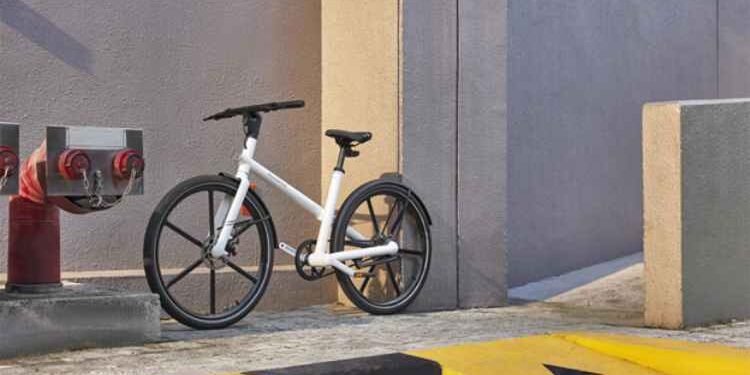In recent years, electric bikes (or “e-bikes”) have become increasingly popular. As the name implies, e-bikes are powered by a battery and motor, providing assistance to riders as they pedal. This makes them ideal for people who want to get around quickly, without having to break a sweat. But are e-bikes good for the environment?
The answer depends on a few factors. In this article, we’ll look at the environmental impact of electric bikes and their potential benefits in an effort to determine if they can be considered “green” or not. Let’s get started!
The Environmental Impact of E-Bikes
Naturally, it would make sense that electric bikes are better for the environment than traditional gasoline-powered vehicles. After all, e-bikes don’t produce any emissions when being ridden. However, there is still an environmental cost associated with them due to their production and manufacturing process.
Like any other product, electric bikes are made up of a variety of materials and components that have to be sourced and assembled. The vast majority of these components come from overseas, meaning they require transportation over long distances in order to get to the final destination. This means an increased use of fossil fuels which, unfortunately, contributes to global warming.
The batteries used in electric bikes are also problematic. Most contain lithium-ion cells which can take hundreds of years to decompose when disposed of improperly. This creates a huge environmental hazard if people don’t properly recycle their old batteries or if companies aren’t careful about using sustainable materials during production.
Manufacturing
One of the first things to consider when evaluating the environmental impact of e-bikes is the manufacturing process. Like any consumer product, the materials and methods used to make e-bikes can have a significant impact on the environment.
One of the biggest concerns with e-bike manufacturing is the use of rare earth metals. Many e-bike motors rely on rare earth metals like neodymium and dysprosium, which are often mined using environmentally destructive methods. Additionally, the process of refining these metals is energy-intensive and can also have negative environmental consequences.
Another issue to consider is the energy used during the manufacturing process. The energy used to produce electric bikes, especially in countries with high carbon emissions, can contribute to climate change. Moreover, the battery manufacturing process, where toxic materials are used, can also be a source of pollution.
Energy Usage
Another important factor to consider when evaluating the environmental impact of e-bikes is the energy used to power them. Electric bicycles are powered by rechargeable batteries, and the environmental impact of these batteries will depend on the source of the electricity used to charge them.
If e-bikes are charged using electricity generated from renewable sources like wind or solar power, they can be considered a relatively “green” mode of transportation. However, if they are charged using electricity from non-renewable sources like coal or natural gas, the environmental impact of e-bikes will be much higher.
It is also worth noting that the battery itself can have environmental impact. While many e-bike batteries are designed to be recyclable, the recycling process can be complex and costly. This means that many e-bike batteries may end up in landfills, where they can release toxic chemicals into the environment.
Disposal
Finally, it’s important to consider the environmental impact of e-bikes when they reach the end of their lives. Like any consumer product, e-bikes will eventually need to be disposed of. And, if not disposed of properly, e-bikes can have a negative impact on the environment.
One of the biggest concerns with e-bike disposal is the disposal of the rechargeable battery. As mentioned earlier, the recycling process can be complex and costly, meaning that many e-bike batteries may end up in landfills. Additionally, if the batteries are not properly recycled, they can release toxic chemicals into the environment.
Another issue to consider is the disposal of the e-bike itself. As e-bikes become more popular, more of them will eventually need to be disposed of. If not done properly, the disposal of these bikes can contribute to pollution and waste.
Reduce Pollution and Carbon Emissions
E-bikes are powered by electricity, meaning that they do not emit any pollutants or carbon dioxide into the atmosphere. This makes them much more eco-friendly than traditional gas-powered vehicles which release harmful gases into the air. In addition, because they require no gasoline, they also help to reduce our dependence on fossil fuels and help us move towards renewable energy sources.
Cost Effective
E-bikes are much more cost effective than cars in terms of fuel costs and maintenance. Electric bikes require little to no fuel, making them significantly cheaper to run than traditional cars or motorcycles. Additionally, since they don’t require any gasoline or oil changes, there is very little maintenance required, saving you further money in the long run.
Lightweight Design
E-bikes are much lighter than traditional vehicles due to their simpler design and lack of heavy components like engines and transmissions. This makes them easier to transport and store when not in use, taking up less space than larger vehicles such as cars or vans. In addition, their light weight makes them easier to maneuver around crowded streets or tight parking spaces without having to worry about getting stuck in traffic jams or running out of room for turning.
Conclusion
Overall, e-bikes can be an environmentally friendly mode of transportation if they are manufactured responsibly and powered by renewable energy sources. However, their environmental impact is highly dependent on how they are used and disposed of.
The disposal of the battery in particular should be done with care to avoid releasing toxic chemicals into the environment.
If you’re considering buying an electric bike, make sure that it has been manufactured sustainably and that its batteries can be recycled properly when it reaches the end of its life. By taking these steps, we can all help protect our planet for future generations to enjoy!
